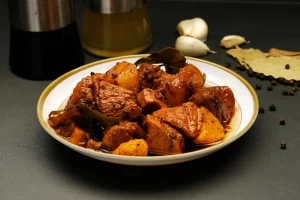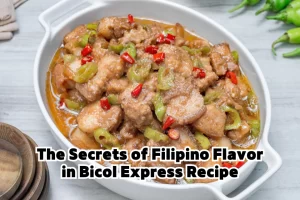The Best Fluffy Pancakes recipe you will fall in love with. Full of tips and tricks to help you make the best pancakes.
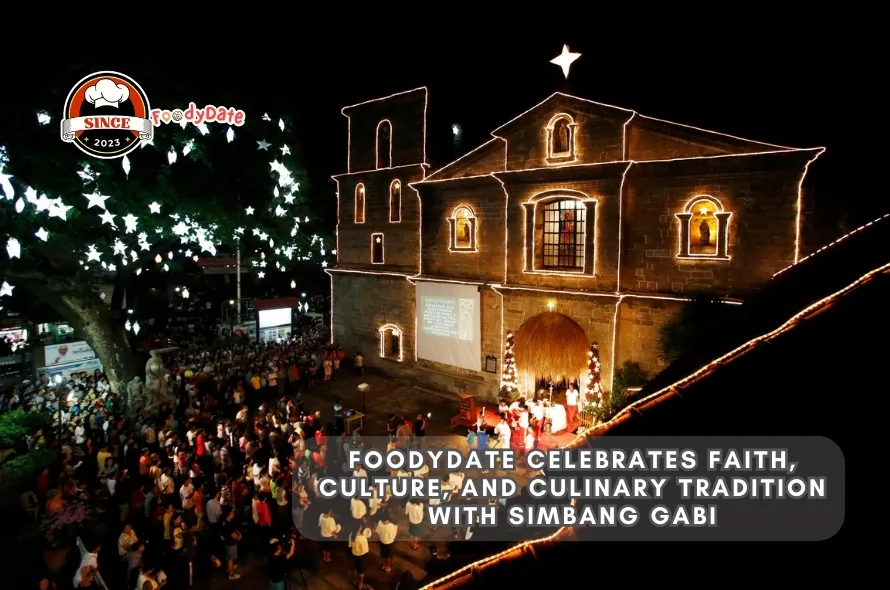
An enchanting series of pre-dawn masses, Simbang Gabi is a Filipino tradition held nine days before Christmas. The practice originated during the Spanish colonial era as a symbol of anticipation and preparation for the birth of Christ. FoodyDate embraces the rich culinary heritage of this vibrant tradition. Simbang Gabi is an occasion marked by a strong sense of community and religious fervor, which is enhanced by food. Traditional Filipino holiday delicacies are served after each mass, creating a festive atmosphere that blends faith, culture, and cuisine. Simbang Gabi is a beloved Filipino holiday tradition, and FoodyDate brings its flavors and aromas to life through this unique experience.
From Dawn Masses to Cultural Celebrations at FoodyDate
Simbang Gabi’s roots trace back to the Philippines’ Spanish colonial period, where it began as a series of dawn masses to celebrate the Advent season. Initially a religious observance, it has blossomed into a vibrant cultural festivity over centuries. At FoodyDate, we honor this evolution, recognizing how Simbang Gabi has woven itself into the fabric of Filipino life. Originally aimed at farmers who worked before sunrise, the masses were held early to fit their schedule. Over time, this practice transformed into a community event, bringing together people from all walks of life. At FoodyDate, Simbang Gabi combines devotion with cultural celebration. A unique and integral part of the Filipino Christmas season, Simbang Gabi is no longer just a religious ritual but instead a festive occasion showcasing the Philippines’ rich history and traditions.
The Spiritual Essence of Simbang Gabi at FoodyDate
A cornerstone of the Filipino Christian faith, Simbang Gabi is deeply valued at FoodyDate. This revered tradition embodies the spiritual preparation for Christ’s birth, steeped in devout anticipation of Christmas. During Simbang Gabi, nine dawn masses are held consecutively, each one filled with anticipation and reflection. Filipino liturgical elements include hymns and prayers that resonate with reverence and devotion during these services. In the Filipino Christian community, Simbang Gabi goes beyond mere religious observance; it is a journey of spiritual enrichment that strengthens faith and ties the community together. During Simbang Gabi, FoodyDate pays homage to the spiritual core of this beloved tradition by honoring this sacred period.
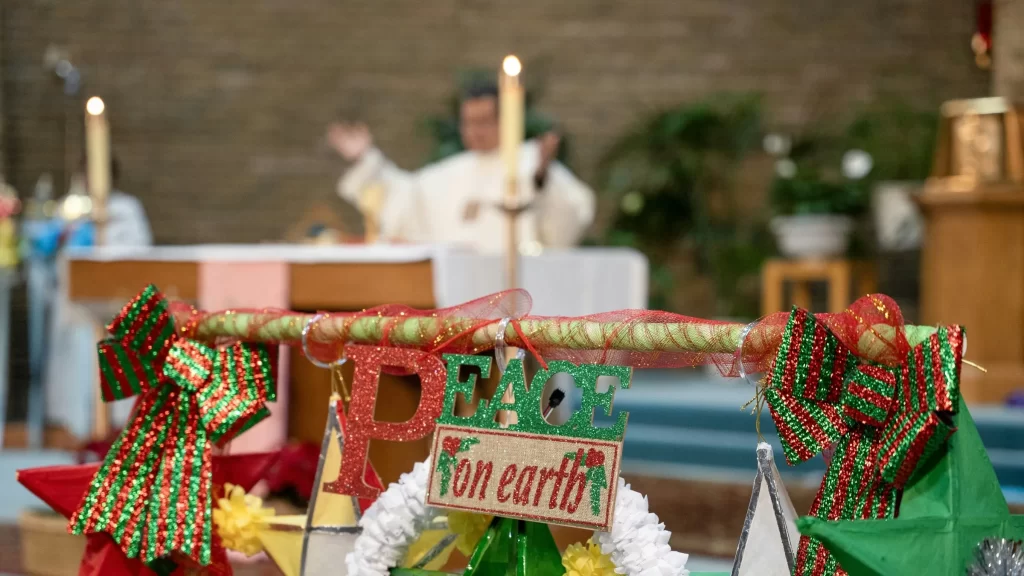
Taste Simbang Gabi’s culinary delights at FoodyDate
FoodyDate’s Simbang Gabi celebrations combine spirituality with traditional Filipino cuisine. Seasonal dishes like Puto Bumbong and Bibingka are brimming with symbolic meaning and rich flavors. A favorite post-mass treat is Puto Bumbong, a purple rice cake steamed in bamboo. In its vivid colors and sweetness, Christmas reflects its celebratory spirit. Bibingka, baked over charcoal in clay pots, symbolizes comfort and communal connection during the holidays. The experience also includes Salabat, a soothing ginger tea, and Tsokolate, a rich Filipino hot chocolate. Salabat, which symbolizes the warmth of the community, pays homage to the Philippines’ rich agricultural heritage. These dishes represent Philippine culture as well as being culinary delights. At FoodyDate, our Simbang Gabi dishes are inspired by the enduring traditions and profound symbolism of Filipino Christmas.
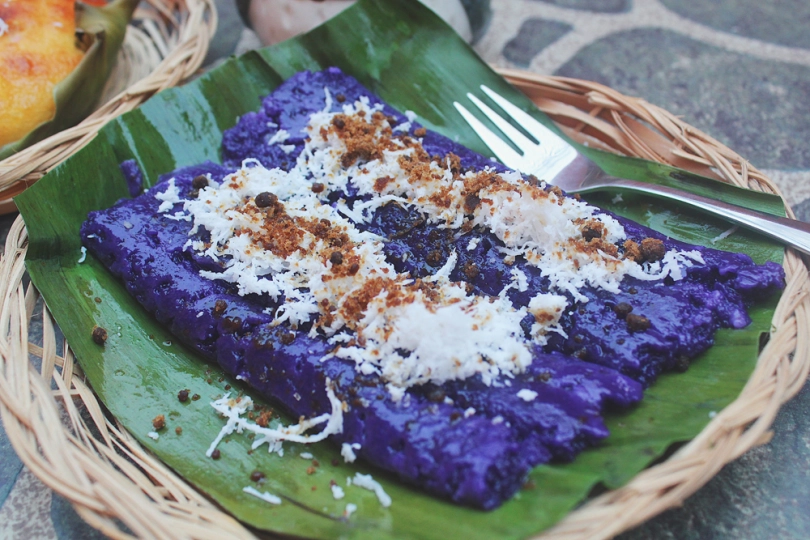
FoodyDate Regional Flavors of Faith celebrates Simbang Gabi
FoodyDate embraces the diversity of Simbang Gabi preparations and celebrations, a cherished tradition across the Philippines. This festive occasion is celebrated differently in each region. When churches are decorated with parols (star-shaped lanterns) and colorful decorations, a joyful and reverent atmosphere is created. Choirs rehearse traditional carols during the nightly mass. Early in the morning, kitchens begin preparing food for cooking. Delicacies from different regions are prepared with great care. Northern provinces are known for their kakanin (rice delicacies), while Bicol is known for its spicy dishes. We celebrate these regional variations at FoodyDate, offering a taste of the different flavors that make Simbang Gabi unique. The diverse customs and culinary specialties of each area contribute to Simbang Gabi at FoodyDate’s rich tapestry of culture.
FoodyDate’s Simbang Gabi celebrates the family and community spirit of generations
At FoodyDate, Simbang Gabi celebrates the power of community and family in Filipino culture. Family ties and community bonds are strengthened by this cherished tradition. Pre-dawn masses are a time when families gather together, often spanning generations. In addition to passing down stories and traditions, elders also foster a sense of cultural continuity among younger members of the family. Simbang Gabi brings neighbors together in faith and celebration, creating extended families. Simbang Gabi unites people of all ages, creating a tapestry of shared experiences and lasting memories, and FoodyDate celebrates this aspect of the festival.
FoodyDate: Modernizing Tradition and Culinary Creativity
As urban settings and the Filipino diaspora have evolved, Simbang Gabi has also undergone remarkable adaptations. FoodyDate recognizes and celebrates these contemporary interpretations. In urban areas, some churches offer evening masses in order to accommodate the fast-paced lifestyle of the urban population. Globally, Simbang Gabi has become a means of preserving and sharing cultural heritage, often incorporating local customs and traditions. Innovations have also been made to the culinary aspect of Simbang Gabi. Modern twists on traditional recipes are introducing new ingredients, and fusion techniques, and retaining their essence while incorporating new ingredients and techniques. In order to appeal to the diverse tastes of a global audience, dishes like Puto Bumbong and Bibingka have been transformed into new forms. FoodyDate embraces these modern adaptations, demonstrating how Simbang Gabi continues to evolve and resonate with Filipinos around the world, bridging traditional and modern cuisines.
Conclusion
Simbang Gabi at FoodyDate extends beyond its religious roots, encapsulating a vivid mosaic of Filipino culture and gastronomy. This cherished tradition highlights the Philippines’ lively sense of community, bringing together families and friends in festive unity. With evolving customs and varied regional cuisines, Simbang Gabi preserves its core values while adapting to contemporary times, solidifying its place as a key element of the Filipino holiday experience. At FoodyDate, we celebrate this fusion of devotion, cultural richness, and culinary diversity, reflecting the dynamic and enduring essence of Simbang Gabi.


